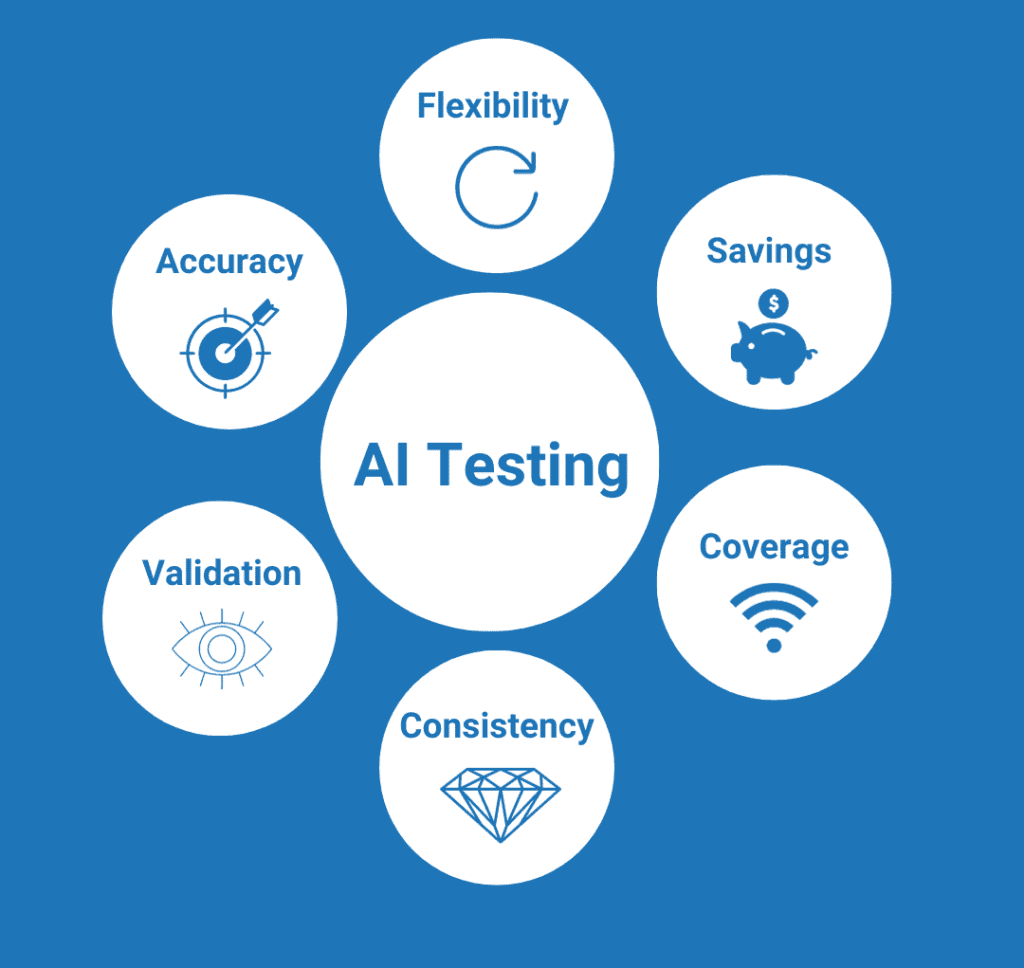Artificial Intelligence (AI) has become a fundamental component of our daily lives, revolutionizing the way we interact with technology. AI systems, ranging from virtual assistants to self-driving cars and recommendation algorithms, are increasingly shaping our experiences. However, with the growing ubiquity of AI, the need for robust AI testing has become more apparent than ever.
AI systems are characterized by their adaptability, as they learn and evolve based on data. While this adaptability is a strength, it also poses significant challenges, making thorough AI testing essential. Here, we explore the significance of AI testing, the challenges it presents, and best practices for effective testing.
AI testing holds tremendous significance for several reasons. First and foremost, it ensures the safety and reliability of AI systems, particularly in critical applications like autonomous vehicles and healthcare. Testing helps confirm that these systems perform reliably under various conditions, minimizing the risk of accidents or malfunctions.
Furthermore, it addresses issues of fairness and bias. AI models can inadvertently acquire biases from training data, potentially leading to unfair or discriminatory outcomes. Rigorous testing is indispensable for identifying and mitigating such biases, thus promoting fairness and equity.
Robustness is another essential aspect of AI testing. AI models must demonstrate resilience in real-world scenarios, including unpredictable or adversarial conditions. Rigorous testing helps uncover vulnerabilities and weaknesses in a model’s performance, enabling improvements and ensuring dependable operation.
AI testing also plays a crucial role in ensuring compliance with regulations. Many industries, such as finance and healthcare, are subject to strict rules and standards. Effective testing is essential for validating that AI systems conform to these compliance requirements, preventing potential legal or ethical dilemmas.
Nonetheless, it comes with its share of challenges. One of the primary obstacles is the lack of a clear ground truth. AI models often learn from historical data, making it challenging to establish an absolute reference point for testing. This inherent uncertainty complicates the measurement of a model’s performance.
Data diversity is another challenge. AI systems must perform effectively in diverse environments and scenarios. Testing must encompass this variability to evaluate a model’s ability to generalize its learnings to different situations.
Scalability is a practical challenge in AI testing. Many AI models are trained on enormous datasets, making comprehensive testing resource-intensive. Efficient testing methods that can be applied to large-scale models are essential to manage this complexity.
Additionally, the interpretability of AI models is often limited. Many AI models, such as deep neural networks, are intricate and challenging to interpret. This complexity hinders the understanding of why a model made a specific decision, which is crucial for debugging and testing.
To overcome these challenges, AI testing necessitates a systematic and comprehensive approach. It begins with the curation of diverse datasets that accurately represent real-world scenarios. Robustness testing should incorporate adversarial conditions and edge cases to evaluate a model’s resilience.
Bias and fairness testing should employ tools and methodologies to identify and rectify biases in AI systems, ensuring fairness and equity in outcomes. Model interpretability techniques, such as explainable AI (XAI), can enhance the understanding of AI models’ decision-making processes.
Continuous testing and monitoring are also essential. AI systems can drift over time due to shifting data distributions and evolving user behavior. Regular testing and monitoring help maintain the performance and reliability of these systems.
In conclusion, AI testing is integral to the development and deployment of AI systems. It guarantees their safety, reliability, and fairness while helping meet regulatory and compliance obligations. As AI continues to play a more prominent role in our lives, the importance of thorough testing becomes increasingly evident. By embracing best practices and addressing the challenges of AI testing, we can build trustworthy and responsible AI systems that benefit society at large.
